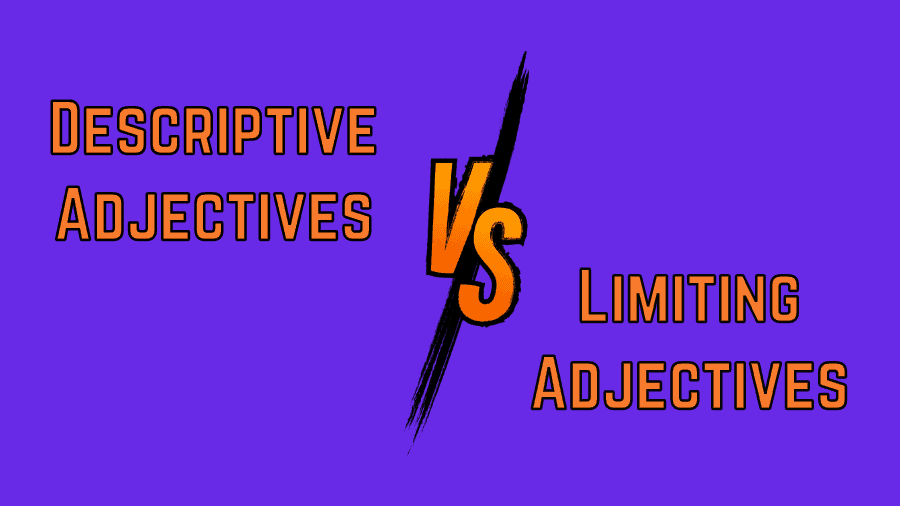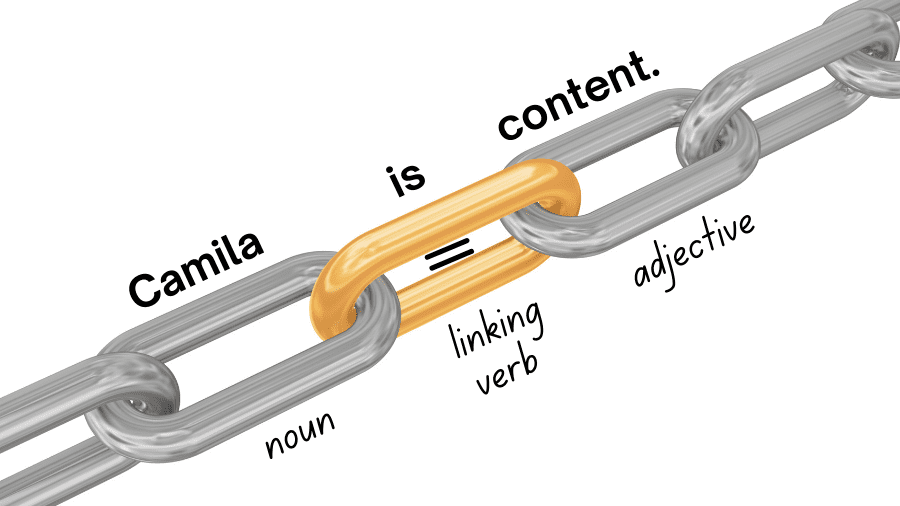This article may contain affiliate links. Please see our affiliate disclaimer in the footer menu for more information. Thank you for your support!

If you’re studying English grammar, you may be curious if adjectives can modify other adjectives. As a trained proofreader, I can help you understand the parts of speech that adjectives can and can’t modify.
Adjectives cannot modify other adjectives. Adjectives can only modify two parts of speech: nouns and pronouns. True to their name, descriptive adjectives describe nouns and pronouns, and limiting adjectives limit them. Adverbs are the part of speech that can modify adjectives.
Let’s learn more about adjectives and see how they do their job of modifying nouns and pronouns. We’ll look at many example sentences along the way!
Can Adjectives Modify Other Adjectives?
Adjectives are one of the eight parts of speech in the English language.
The other parts of speech are the following:
- nouns
- pronouns
- verbs
- adverbs
- prepositions
- conjunctions
- interjections
Let’s see an expert definition of the word adjective.
“An adjective is a word (more particularly, a type of word sometimes called an adjunct) modifying a noun or pronoun; it is often called a describing word.”
We know that adjectives can’t modify other adjectives. Instead, they modify nouns and pronouns.
What are nouns and pronouns?
A noun is a person, place, thing, or idea. Here are a few examples of nouns:
- girl (person)
- mountains (place)
- rock (thing)
- freedom (idea)
A pronoun takes the place of a noun. Here are a few examples of pronouns:
- I
- her
- yours
- somebody
Let’s learn precisely how adjectives modify (describe) nouns and pronouns.
However, if you’d like to learn more about adverbs—the part of speech that can modify adjectives—I wrote a comprehensive post about how to find adverbs.
What Adjectives Tell Us about the Words They Modify
Adjectives usually answer one of the following questions about the nouns and pronouns they modify:
- What kind?
- Which one?
- How many?
Let’s look at a few example sentences.
Example 1: The cute puppy played in the yard.
The adjective cute modifies the noun puppy. It tells us what kind of puppy was playing. (What kind?)
Example 2: She wants to use this gemstone to make her bracelet.
The adjective this modifies the noun gemstone. It tells us which gemstone she would like to use. (Which one?)
Example 3: Fred found four frogs in the forest.
The adjective four modifies the noun frogs. It tells us how many frogs Fred found. (How many?)
The Two Main Types of Adjectives

In English grammar, we have many kinds of adjectives.
Basically, they all fall into two major categories: descriptive adjectives and limiting adjectives.
Descriptive Adjectives
Most adjectives you come across are descriptive adjectives.
As their name suggests, descriptive adjectives describe the nouns and pronouns they modify.
Here are just a few examples of the thousands upon thousands of descriptive adjectives in English:
- green
- hot
- golden
- shiny
- rainy
- long
- gigantic
- new
- fierce
- amazing
Let’s see a couple of these descriptive adjectives doing their thing.
Example 1: The shiny star sparkled in the sky.
The adjective shiny modifies (describes) the noun star.
What kind of star is it? (a shiny star)
Example 2: The children took a trip to the new museum.
Here, the adjective new describes the noun museum.
What kind of museum is it? (a new museum)
Limiting Adjectives
Limiting adjectives stand in contrast to descriptive adjectives.
True to their name, limiting adjectives limit (restrict) the nouns and pronouns they modify. Instead of telling us more about a noun or pronoun, they define the scope of these two parts of speech.
Here are some examples of limiting adjectives:
- this
- those
- her
- your
- some
- several
- every
- twenty
- ten thousand
- fifteenth
Here are two example sentences using limiting adjectives.
Example 1: This pen writes smoothly.
Here, the adjective this modifies (limits) the noun pen.
Which one (which pen) are we talking about? (this pen)
We’ve defined the scope of the noun to just this pen.

Example 2: Twenty birds were flying high in the sky.
The adjective twenty modifies (limits) the noun birds.
How many birds are we talking about here? (twenty birds)
We’ve defined the scope of the noun to twenty birds.
The Position of Adjectives in Relation to Words They Modify
Can Adjectives Be in the Following Positions?
| Adjective Position | Is It Possible? |
|---|---|
| Before the Noun | yes |
| After the Noun | yes |
| Before the Pronoun | yes (but not often) |
| After the Pronoun | yes |
In English, adjectives typically come before the nouns they modify—like in the example sentences we’ve seen.
Adjectives usually don’t come before the pronouns they modify, but they do occasionally. We’ll see an example of that soon.
Adjectives can also come after the nouns and pronouns they modify.
The most common scenario of an adjective coming after the word it modifies is in the case of predicate adjectives.
Predicate Adjectives
So what is a predicate adjective?
A predicate adjective describes the subject of a sentence and comes after a linking verb.
The subject of a sentence is a noun or pronoun that is performing an action or being described.
Linking verbs are named such because they link the subject of a sentence to information that describes the subject.
Linking verbs do not show action; they signify a state of being.
The verb to be (and all its forms) is the most common linking verb. Other common linking verbs relate to our five senses (look, smell, taste, sound, and feel).
Here’s a list of common linking verbs, including the forms of the verb to be.
Let’s see some examples of predicate adjectives.
Example 1: Camila is content.
The adjective content comes after the linking verb is (a form of to be) and describes the noun Camila.
Linking verbs are often described as being like an equal sign because the subject (on one side of the linking verb) and the information that describes the subject (on the other side of the linking verb) refer to the same thing.
For example, in our sentence above, Camila = content.

Example 2: The wolf was wary of the bear.
The adjective wary comes after the linking verb was (a form of to be) and describes the noun wolf. (wolf = wary)
Example 3: The honeysuckle on the bush tastes sweet.
The adjective sweet comes after the linking verb tastes and describes the noun honeysuckle. (honeysuckle = sweet)
Example 4: He seems nice.
The adjective nice comes after the linking verb seems and describes the pronoun he.
(He = nice)
So far, we’ve seen adjectives that come before and after the nouns they modify.
In that last sentence (Example 4), we saw an adjective come after the pronoun it modifies.
But what about an adjective that comes before the pronoun it modifies?
Adjectives That Come before the Pronouns They Modify
Let’s return to The Chicago Manual of Style (CMOS) for guidance.
CMOS notes that adjectives usually come after the pronoun they modify, but occasionally they come before.
CMOS gives two examples of adjectives coming before the pronoun:
Example 1: “Flustered, he sat down.” (CMOS)
Here, the adjective flustered modifies the pronoun he.
Example 2: “They offered her the director position but, uncertain, she demurred.” (CMOS)
And here, the adjective uncertain modifies the pronoun she.
Now, we’ve seen it all! Adjectives that come before and after the nouns and pronouns they modify. Yay! 😊
Frequently Asked Questions
Can adjectives modify adverbs?
Adjectives cannot modify adverbs. Adjectives are words that modify nouns and pronouns. They tell us which one, what kind, or how many regarding the nouns and pronouns they describe. Adverbs are the part of speech that can modify other adverbs.
Can adjectives modify verbs?
No, adjectives can’t modify verbs. Adjectives can only modify nouns and pronouns. The part of speech that modifies verbs is the adverb.
Which part of speech modifies a verb, adjective, or adverb?
Adverbs are the part of speech that can modify verbs, adjectives, and other adverbs. They often end in ly. Adverbs tell us when, where, how, and to what extent (how often or how much) regarding the parts of speech they modify.
I hope this post helped you better understand the parts of speech that adjectives can and can’t modify.
I wrote an article about how to upgrade your grammar game if you’d like to keep learning.
Best wishes to you!
“Plant seeds of happiness, hope, success, and love; it will all come back to you in abundance. This is the law of nature.”
– Steve Maraboli

Recent Posts
Punctuation is important because it enables us to communicate our message clearly and effectively. Without punctuation, we wouldn’t understand how units of a sentence relate to one another or how...
Although you're probably somewhat familiar with adverbs, you may be unaware of sentence adverbs. As a trained proofreader who has studied the parts of speech, I can help you understand this unique...
